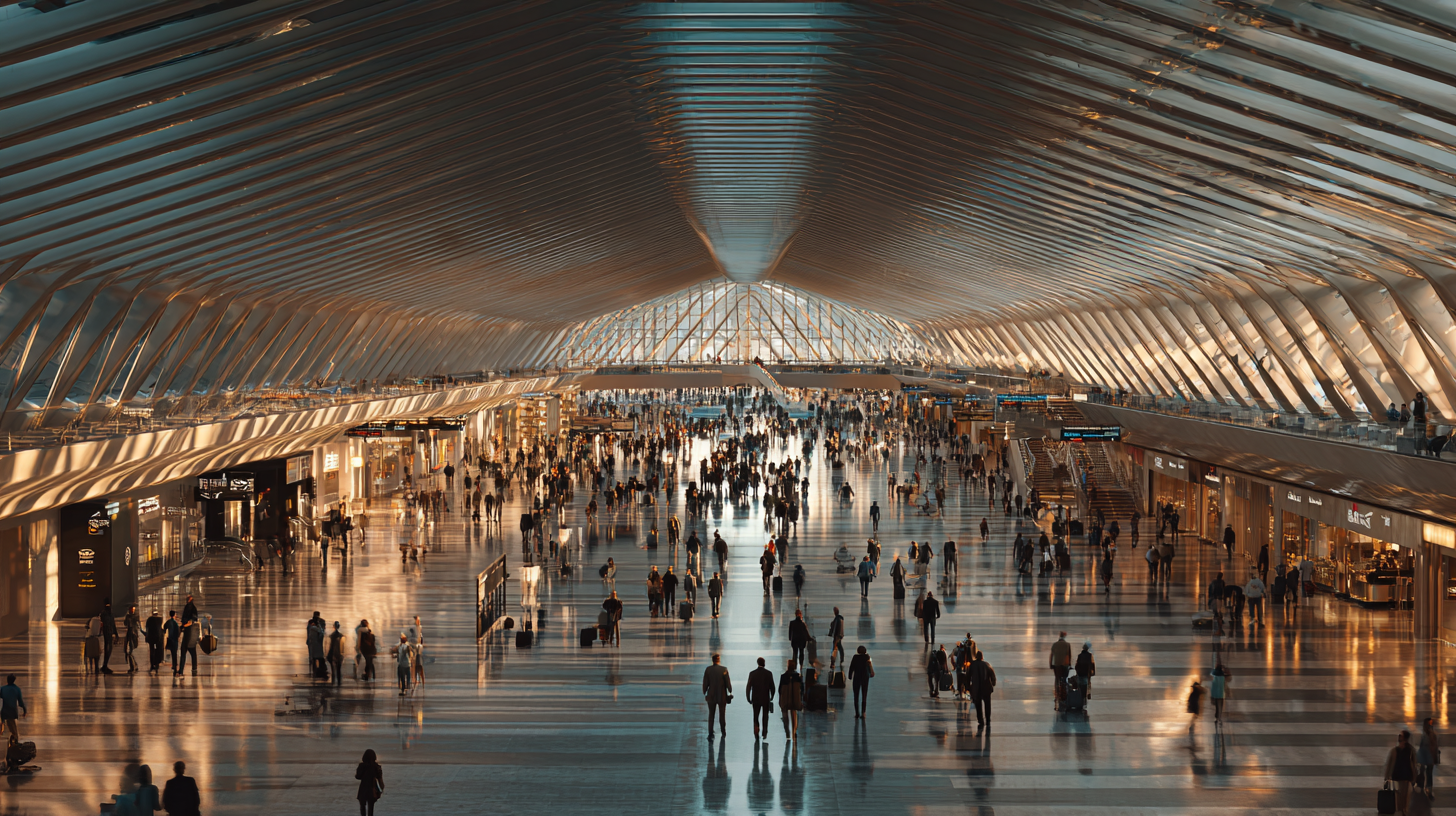Business Travel 2025: A Forward-Looking Takeoff

In 2025, I’ve watched businesses around the globe redefine corporate travel with a sharper focus on personalization, technology, and meaningful purpose. Industry data shows global spending on business travel could reach US$1.64 trillion, underscoring how resilient the sector truly is. As I’ve spoken to colleagues and experts, nearly half have told me they anticipate more trips in the coming years, and 57% expect increased spending, with APAC and North America setting the pace for global recovery. This momentum has transformed traditional corporate trips into immersive experiences that deliver stronger ROI and deeper human connections.
1. Personalized AI-driven Planning

I’ve noticed a major shift in how corporate travelers plan their journeys, and predictive analytics is at the heart of it. AI-driven booking platforms learn from personal preferences, purchase histories, and data on popular routes to create an itinerary that feels tailor-made. According to a recent study by the Global Business Travel Association, 62% of frequent flyers cite “smart” itineraries as a key motivator for future engagements, leading to better cost awareness and reduced travel disruptions.
On my last trip to an industry conference in Singapore, I used an AI-powered travel assistant that suggested optimal times to depart based on projected flight costs and real-time availability of lodging. This technology also ensured my itinerary balanced productivity with my personal hobbies—like a quick visit to the Gardens by the Bay—making the entire journey more fulfilling. In addition to personalization, these systems deliver regular updates on flights, destinations, and local health protocols. Having immediate insights into weather patterns, transportation options, or special events helps me adapt quickly and maintain full compliance with company guidelines.
Beyond maximizing convenience, AI also automates expense management, from scanning receipts to generating immediate reports. I’ve found this particularly helpful in cutting down administrative work so I can focus on the actual reasons for traveling. By merging technology with personal insight, organizations today are bringing new life to business travel, ensuring every trip is relevant, cost-effective, and surprisingly fun.
2. “Bleisure” and Hybrid Work

“Bleisure” has become the buzzword echoing in workplace corridors, fueled by flexible schedules and remote work policies. In many conversations I’ve had with fellow travelers, 74% say they plan to extend their travels for relaxation or cultural exploration. This blend makes business trips feel more rewarding, especially when you can transition from an important client meeting to an evening of local cuisine or art galleries.
In my own travels, shifting to a hybrid work environment has meant I can stay in a destination a few extra days without missing important deadlines. In late 2024, I visited a tech forum in Stockholm, then spent the weekend exploring the city’s bustling waterfront and sustainable urban gardens. Immersing myself in local culture enabled me to return with fresh perspectives—and some innovative product ideas for my team.
From a strategic standpoint, companies are catching on to the power of bleisure. According to a 2025 corporate travel survey, nearly 70% of HR teams are now offering added benefits for employees who choose to combine work and leisure, citing improved job satisfaction and even fostering better networking opportunities. When people are free to explore, they often return more energized, creative, and ready to innovate.
3. Sustainability and Purposeful Travel

When I speak with eco-conscious travelers, the conversation often revolves around meaningful travel—trips that serve a clear objective and minimize the carbon footprint. A recent study suggests that up to 80% of corporations have introduced greener policies, such as carbon offset schemes, to help employees feel more responsible about their environmental impact.
A key observation I’ve had is how travelers are prioritizing carriers, hotels, and ground transport providers that showcase proven sustainability records. Whether choosing airlines investing in sustainable aviation fuel or hotels offering local farm-to-table menus, there is a real desire to travel responsibly. Many booking tools even allow me to filter flights by carbon emissions, so I can make an informed choice.
Companies are also using digital collaboration platforms more efficiently, aiming to replace some non-essential trips with virtual meetings. That means every in-person journey must deliver a clear ROI—whether it’s expanding a network, finalizing deals, or strengthening cross-border relationships. This renewed focus helps both the planet and the bottom line, as each trip is justified by impactful goals that support personal and professional growth.
4. Fintech and Frictionless Payments

I recently noticed how fintech solutions are taking the hassle out of expense reporting and payment methods. Digital wallets and embedded finance solutions provide real-time tracking of costs, reducing last-minute spending surprises. During my last conference stop in Toronto, I paid for rideshares, hotels, and meals with a single app that instantly updated my budget tally—eliminating the stress of collecting receipts the old-fashioned way.
According to industry data, 65% of frequent business travelers now prefer digital payment platforms over corporate cards or petty cash. These systems not only help travelers remain within policy limits, but also provide actionable insights on spending trends across entire organizations. By collaborating with fintech apps, airlines and travel agencies have tapped into frictionless processes that benefit everyone from the CFO to the frequent flyer in seat 5A.
There’s also a growing ecosystem of partnerships among finance, travel, and tech providers. Enhanced security protocols and straightforward refund policies have strengthened traveler confidence, leading to more transparent and worry-free transactions. In essence, fintech is proving that modern business travel doesn’t have to be a headache—it can be as smooth as scanning a QR code.
5. VIP Experiences and Beyond

Stress at airports has historically been one of the biggest drawbacks of business travel. Personalized concierge services and subscription-based VIP programs are flipping that narrative. During a recent trip through a major hub, I experienced a tailored meet-and-assist program that guided me from check-in to boarding in record time, sparing me the usual security line woes.
According to a leading customer loyalty consultancy, airlines offering premium lounge amenities and automated check-in have seen a 30% increase in business membership renewals over the past year. This includes dedicated relaxation spaces, express screening lanes, and curated dining experiences. I’ve even tried next-generation lounge concepts featuring immersive tech displays and on-demand spa treatments—turning a layover into a rejuvenating break.
Neighborhood expansions around airports now include coworking spaces, short-stay accommodations, and meal-delivery services. This allows travelers to be fully functional even during tight connections. Over time, I believe these VIP enhancements will become standard practices, making airports a more welcoming environment, rather than just a point of transit.
Final Thoughts

As we enter the heart of 2025, business travel is no longer centered on rigid agendas and tedious wait times. We’re seeing it evolve into a realm of personalized schedules, eco-conscious planning, and seamless technology. In my experience, the most exciting aspect is how these innovations bring humans into sharper focus. Rather than wasting hours juggling logistics, travelers can devote themselves to meaningful partnerships and immersive local experiences.
The best takeaway I’ve gleaned is that technology is a catalyst, but authenticity and a genuine sense of exploration are still the core of productive travel. When I look at companies investing in these areas, I’m reminded that the future of business travel is about bridging distances in a way that values people, planet, and progress.
Amelia Yeaher’s Take
I’ve had the privilege of watching corporate travel transform from a series of hectic flights into a dynamic, user-focused journey. I’m constantly inspired by the synergy between AI-driven planning and human curiosity, and I see a future where every trip can be purposeful and deeply meaningful.
In the grand tapestry of 2025, there’s still plenty of room to explore. With sustainability at the forefront and technology smoothing the path, business travel will continue to shape how we connect, collaborate, and innovate across borders.
Seat5A is your window to the world of travel—join the journey and discover what’s next.






